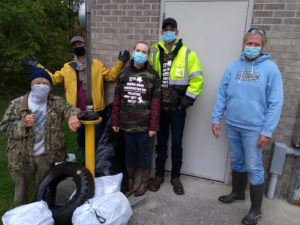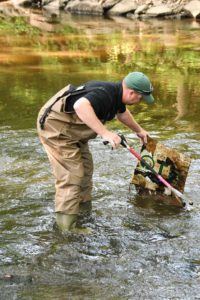OTW Field Season in Review
On the Water(OTW) is MUCC’s volunteer watershed habitat improvement program. It was launched in the spring of 2019 and is fully funded by the Consumers Energy Foundation. OTW is designed to have a positive impact on freshwater and habitats throughout the state and to connect and engage Michigan residents to their natural resources by highlighting and educating the importance of freshwater.
 OTW’s 2020 field season is looking a bit different this year. From COVID-19 to the BLM movement we live in very strange and unprecedented times. OTW is continuing to learn to make the future better. But OTW has adapted to these changes and are still striving to make a positive difference.
OTW’s 2020 field season is looking a bit different this year. From COVID-19 to the BLM movement we live in very strange and unprecedented times. OTW is continuing to learn to make the future better. But OTW has adapted to these changes and are still striving to make a positive difference.
As of the end of the beginning of October, over 450 OTW volunteers have removed 6000 pounds of trash and 105 pounds of invasive species! We have also impacted 1750 acres of Michigan land. OTW had an amazing 2020 season and wants to thank the Consumers Energy Foundation for its dedication to conservation and willingness to reach broad user groups through freshwater cleanups.
As the field season concludes, we shift into report writing mode. This is where we need your help. We are looking for feedback and testimonials from you, our dedicated volunteers. If you could contribute your feedback or a testimonial about the OTW program, we would greatly appreciate it and it would help us with future funding endeavors.
testimonials from you, our dedicated volunteers. If you could contribute your feedback or a testimonial about the OTW program, we would greatly appreciate it and it would help us with future funding endeavors.
OTW will be concluding this December. The OTW program will be leaving behind a positive and everlasting impact on the watersheds and communities throughout the state of Michigan. The environment and natural resources of Michigan will still have long-term ecological benefits from the completion of this project and the overall program. OTW hopes to receive funding and continue on this amazing legacy for MUCC and for the State of Michigan.
If you have questions or comments about the event, please contact Emma Nehan at enehan@mucc.org.
The post OTW Field Season in Review appeared first on Michigan United Conservation Clubs.
Recent Posts



